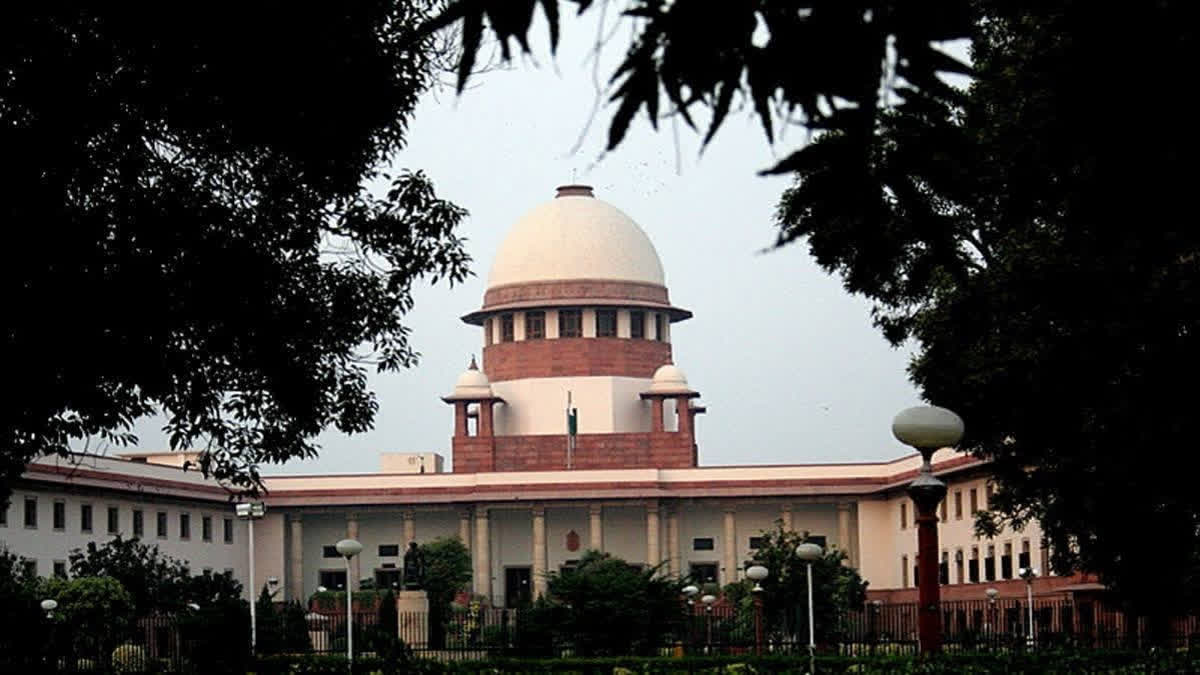New Delhi: The Supreme Court on Monday said the principle of law is crystal clear that on the account of defective investigation, the benefit will not inure to the accused persons, on that ground alone, and the accused cannot claim acquittal on the ground of faulty investigation done by the prosecuting agency.
A bench comprising Justices Sudhanshu Dhulia and Prasanna B. Varale said crime creates a sense of societal fear and adversely affects the societal conscience and it is inequitable and unjust if such a situation is allowed to perpetuate and continue in the society.
The bench said in every civilized society, the purpose of the criminal administrative system is to protect individual dignity and to restore societal stability and order and to create faith and cohesion in the society. "The courts in the discharge of their duties are tasked with balancing the interests of the accused on one hand and the state/society on the other," it said.
The bench said the principle of law is crystal clear that on the account of defective investigation, the benefit will not inure to the accused persons on that ground alone.
The bench said it is well within the domain of the courts to consider the rest of the evidence which the prosecution has gathered such as the statement of the eyewitnesses, medical report etc. "It has been a consistent stand of this court that the accused cannot claim acquittal on the ground of faulty investigation done by the prosecuting agency," observed the bench.
In the present case, the bench said as the version of eyewitnesses in specifically naming the appellants have been consistent throughout the trial, "we find that there is enough corroboration to drive home the guilt of the accused persons".
On March 1, 2002, a hartal was called by the Rashtriya SwayamSevak Sangh (RSS), which led to violent clashes between the members of RSS and the Communist Party of India (M). This resulted in the death of two people. The accused persons were found guilty by the trial court on several charges under the IPC including murder.
The Kerala High Court acquitted some accused and the conviction of the rest was confirmed. Five accused moved the apex challenging their conviction.
Dismissing the appeal, the apex court said: “On appreciation of the evidence, we are unable to find any fault with the judgment and order dated April 12, 2011, passed by the High Court of Kerala at Ernakulam. Accordingly, we arrive at the conclusion that the present appeal deserves to be dismissed".
The entire submissions of the appellants’ were that since there are contradictions, the entire story of the prosecution is false. "As we have already mentioned above, the principle of 'falsus in uno, falsus in omnibus' does not apply to the Indian criminal jurisprudence and only because there are some contradictions which in the opinion of this Court are not even that material, the entire story of the prosecution cannot be discarded as false. It is the duty of the Court to separate the grain from the chaff", said the bench.
The bench said an untrue version of one of the witnesses or an exaggerated version of a witness may not be a sole reason to discard the entire prosecution case which is otherwise supported by clinching evidence such as truthful version of the witnesses, medical evidence, recovery of the weapons etc.
The bench said, in a given case, it is also open to the court to differentiate the accused who had been acquitted from those who were convicted where there are a number of accused persons, like in the present case.
"Thus, in our opinion, merely because the dead body of Sujeesh was found at a place little away from the place of body of other victim Sunil, it cannot be the sole and decisive factor to discard the entire case of prosecution," observed the bench.



